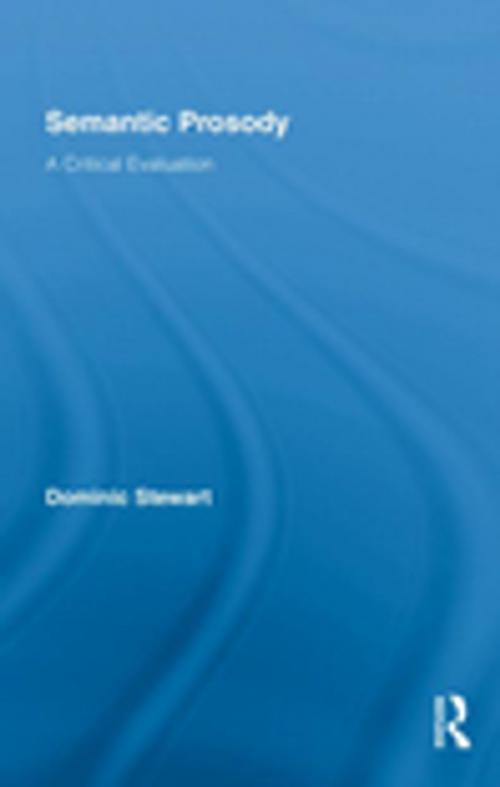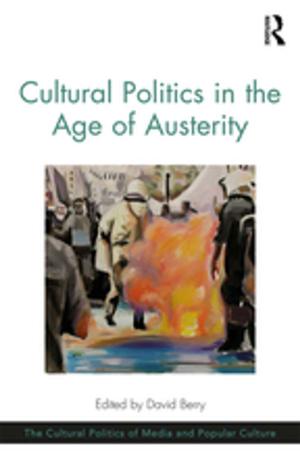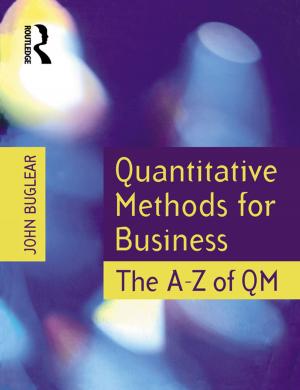| Author: | Dominic Stewart | ISBN: | 9781135196431 |
| Publisher: | Taylor and Francis | Publication: | March 17, 2010 |
| Imprint: | Routledge | Language: | English |
| Author: | Dominic Stewart |
| ISBN: | 9781135196431 |
| Publisher: | Taylor and Francis |
| Publication: | March 17, 2010 |
| Imprint: | Routledge |
| Language: | English |
Semantic Prosody is the first full-length treatment of semantic prosody, a concept akin to connotation but which connects crucially with typical lexical environment. For example, it has been claimed that the adverb 'utterly' is characterised by an unfavourable semantic prosody on account of its habitual co-occurrence with words denoting unfavourable states of affairs such as 'ridiculous', 'disgraceful' and 'miserable'. Primarily for this reason, semantic prosody has emerged almost exclusively within the field of corpus linguistics. However, the overall picture is complex, and this book offers a much-needed review of how semantic prosody has been described and approached in contributions on the subject, as well as a critical analysis of those contributions and a number of case studies. It discusses the relevance of the theory of priming in this area, and whether semantic prosody has cogency as a theoretical concept. Lastly, it points the way for future research.
Since work on semantic prosody so far has been occasional, brief, and distributed across a range of monographs, articles and conference papers, this book, which does not assume previous knowledge of the subject, will constitute a fundamental work of reference for scholars, teachers and students alike. At the same time, Semantic Prosody goes beyond the central topic of the work, with wide-reaching implications for both corpus linguistics and linguistics overall. In this sense the concept of semantic prosody is used as a springboard for investigations into issues of vital importance for corpus studies such as the structuring and presentation of text in a corpus, the varying methodologies adopted by analysts to approach and interpret corpus data, as well as broader issues such as the role of intuition, introspection and elicitation in empirical language studies.
Semantic Prosody is the first full-length treatment of semantic prosody, a concept akin to connotation but which connects crucially with typical lexical environment. For example, it has been claimed that the adverb 'utterly' is characterised by an unfavourable semantic prosody on account of its habitual co-occurrence with words denoting unfavourable states of affairs such as 'ridiculous', 'disgraceful' and 'miserable'. Primarily for this reason, semantic prosody has emerged almost exclusively within the field of corpus linguistics. However, the overall picture is complex, and this book offers a much-needed review of how semantic prosody has been described and approached in contributions on the subject, as well as a critical analysis of those contributions and a number of case studies. It discusses the relevance of the theory of priming in this area, and whether semantic prosody has cogency as a theoretical concept. Lastly, it points the way for future research.
Since work on semantic prosody so far has been occasional, brief, and distributed across a range of monographs, articles and conference papers, this book, which does not assume previous knowledge of the subject, will constitute a fundamental work of reference for scholars, teachers and students alike. At the same time, Semantic Prosody goes beyond the central topic of the work, with wide-reaching implications for both corpus linguistics and linguistics overall. In this sense the concept of semantic prosody is used as a springboard for investigations into issues of vital importance for corpus studies such as the structuring and presentation of text in a corpus, the varying methodologies adopted by analysts to approach and interpret corpus data, as well as broader issues such as the role of intuition, introspection and elicitation in empirical language studies.















